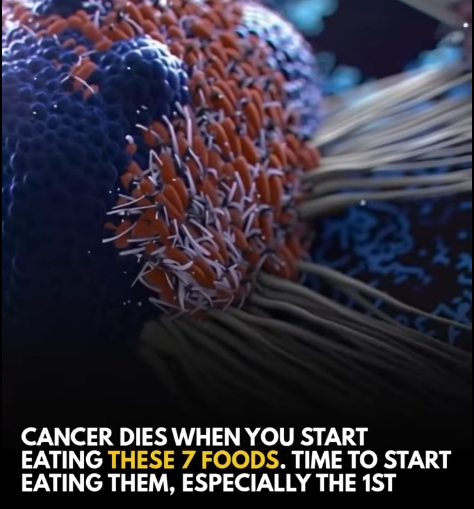
When we think of the people we love — our children, our parents, our partners — we naturally wish for them long, healthy lives. We want them to grow old with vitality, to enjoy their days without the burden of chronic illness. Yet, in the hustle of daily life, many of us rarely pause to consider the immense influence that food can have on our health. Every meal, every bite, is more than just fuel; it is information for our cells. The nutrients we consume shape our energy levels, fortify our immune systems, and even influence our body’s ability to prevent or fight diseases that we fear the most.
In the United States, diet-related illness represents one of the greatest yet often overlooked threats to public health. The Standard American Diet — often abbreviated as SAD — is characterized by highly processed foods, added sugars, and unhealthy fats. Researchers have linked this dietary pattern to numerous serious health concerns, including obesity, diabetes, cardiovascular disease, and various forms of cancer. Alarmingly, only about 8% of the typical American diet comes from nutrient-dense, protective foods, such as fruits, vegetables, legumes, whole grains, and certain proteins. This means that the remaining 92% of daily food choices may actually be working against the body’s natural defenses, increasing inflammation, oxidative stress, and the risk of chronic disease.
While no single food can guarantee protection against cancer, a growing body of research shows that consistent, healthy dietary choices can significantly reduce risk. Lindsey Wohlford, a registered wellness dietitian, notes: “Healthy food choices made consistently over time can lower your cancer risk — but nothing can guarantee prevention.” The good news is that small, deliberate changes can empower the body to defend itself. Incorporating a variety of nutrient-rich foods daily can help strengthen immunity, repair cellular damage, and support detoxification processes.
Here are seven foods, all supported by scientific studies and endorsed by nutrition experts, that have been shown to provide notable protective benefits:
1. Cruciferous Vegetables: Tiny Warriors Against Cellular Damage
Vegetables like broccoli, cabbage, kale, cauliflower, Brussels sprouts, turnips, and bok choy belong to the cruciferous family. These vegetables are packed with powerful compounds called isothiocyanates, which may help reduce inflammation, neutralize carcinogens, support liver detoxification, and protect DNA from damage. Research links higher consumption of cruciferous vegetables with lower rates of breast, oral, kidney, and esophageal cancers. Best of all, these vegetables are affordable, versatile, and nutrient-dense, making them easy to incorporate into daily meals. Each bite is a reinforcement for your cells, supporting long-term health in subtle but powerful ways.
2. Turmeric: The Golden Spice of Cellular Protection
Turmeric, a staple in many cultural cuisines, contains the active compound curcumin, which has drawn significant attention in medical research for its potential protective effects. Curcumin has been shown to fight oxidative stress, calm chronic inflammation, protect cells from mutations, and slow the growth of potentially dangerous cells in laboratory studies. Adding turmeric to soups, teas, smoothies, or roasted vegetables — especially when paired with a pinch of black pepper — significantly increases absorption and maximizes benefits. Even a small daily dose can provide the body with anti-inflammatory and antioxidant support, contributing to long-term cellular health.
3. Mushrooms: Nature’s Immune System Enhancers
Mushrooms have been valued in traditional medicine for centuries and are now recognized by modern science for their potent antioxidant properties. Compounds like L-ergothioneine help combat oxidative stress, which can damage cells and increase cancer risk. Studies suggest that people who consume mushrooms regularly may have a lower risk of prostate cancer and that certain varieties, such as reishi, shiitake, turkey tail, and maitake, may support antitumor activity. Turkey tail mushrooms, in particular, are being studied for their potential to complement conventional cancer treatments. These humble fungi serve as a potent ally in supporting immunity and cellular health.
4. Allium Vegetables: Small but Powerful Defenders
Allium vegetables include onions, garlic, leeks, and shallots. These flavorful foods contain sulfur compounds that may help prevent harmful cellular changes before they progress into cancer. Research has linked regular consumption of allium vegetables to potential reductions in colorectal, stomach, and other digestive tract cancers. Incorporating these vegetables into daily meals — whether in salads, soups, stir-fries, or roasted dishes — provides an easy, delicious way to equip your body with protective tools.
5. Lycopene-Rich Foods: Colorful Protection for Your Cells
Foods like tomatoes, watermelon, pink grapefruit, and red peppers are rich in lycopene, a potent antioxidant that the body cannot produce on its own. Lycopene helps protect cells from oxidative damage, supports immune function, and may reduce the risk of certain cancers and heart disease. Interestingly, cooking tomatoes — as in sauces or soups — makes lycopene more bioavailable, meaning the body can absorb and utilize it more efficiently. Including a variety of red and pink fruits and vegetables daily is a simple yet effective way to support cellular health and reduce oxidative stress.
6. Beta-Carotene-Rich Foods: Fuel for Immunity and Growth
Orange and yellow vegetables such as carrots, sweet potatoes, pumpkin, and butternut squash are abundant in beta-carotene. The body converts this pigment into vitamin A, which plays a vital role in maintaining a strong immune system and promoting healthy cell growth. While more research is needed to fully understand the cancer-specific effects of beta-carotene, a stronger immune system is universally recognized as a critical factor in disease prevention. Enjoying these colorful vegetables regularly helps nourish the body at a cellular level, supporting overall resilience and vitality.
7. Fatty Fish: Anti-Inflammatory Support from the Sea
Chronic inflammation is a key factor in the development of many diseases, including cancer. Fatty fish such as salmon, herring, anchovies, albacore tuna, mussels, and sardines are excellent sources of omega-3 fatty acids, vitamin D, and high-quality protein. Studies suggest that eating fatty fish regularly may reduce cancer risk, support heart and brain health, and strengthen the body’s natural defenses. Including seafood in your diet at least once or twice a week provides critical nutrients that help protect every cell in your body.
Every Meal Is an Opportunity to Protect Your Future
We cannot control every aspect of life, but we can make intentional choices that improve our health and the well-being of those we love. Replacing processed foods with whole, nutrient-rich options is one of the most meaningful acts of self-care we can practice. Food is more than fuel; it is information. It communicates with our cells, instructing them on how to function, repair, and thrive. Every healthy meal is a step toward a stronger, more resilient body and a healthier future.
Disclaimer: This content is for informational purposes only and is not a substitute for professional medical advice, diagnosis, or treatment. Always consult your healthcare provider regarding any questions about your health or dietary needs.
Share the Knowledge: If you found this information useful, share it with someone you care about. A single recommendation could help someone make a life-changing decision today


